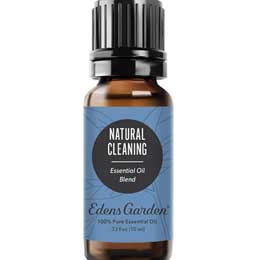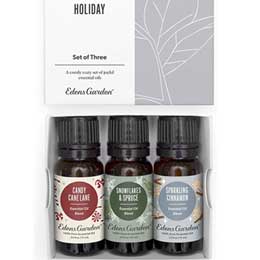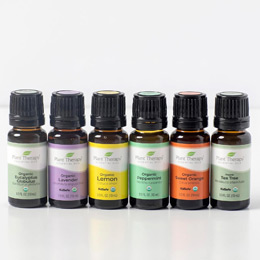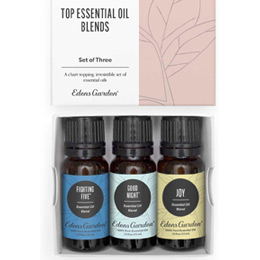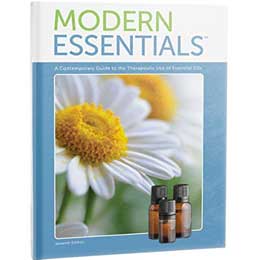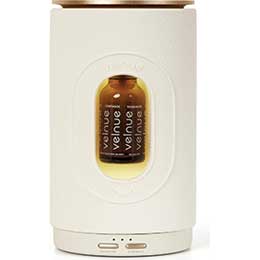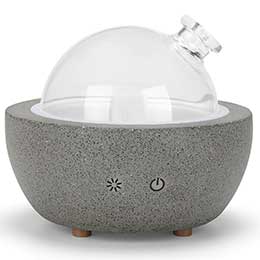Patchouli Essential Oil
If you’ve ever caught a whiff of patchouli and thought, “Ah yes, smells like the ‘70s and incense-filled rooms,” you’re not alone. Patchouli essential oil definitely has a vibe - bold, earthy, and a little mysterious. It’s one of those scents that people tend to either love or wrinkle their noses at. But there’s more to this oil than just its hippie reputation.
Patchouli oil has been used for centuries in everything from skincare to spiritual rituals to keeping bugs out of your closet (yes, really). Whether you're curious about why patchouli shows up in so many perfumes or just wondering if it'll do more than make your yoga mat smell intense, this oil has some hidden talents worth knowing about.
What is Patchouli Essential Oil?
Latin name: Pogostemon cablin
Scent: Earthy, musky, rich, and just a little spicy. Some say it smells like damp soil after rain (in a good way), others swear it smells like your cool aunt who always had crystals and a record player.
Patchouli oil is steam-distilled from the leaves of the patchouli plant - a bushy herb in the mint family. It’s native to Southeast Asia but now grows in tropical regions around the world.
Fun Facts About Patchouli Essential Oil
- Patchouli got its big break in the 1960s and ’70s, when it became the unofficial scent of counterculture.
- It was used to scent fabrics shipped from India to Europe - patchouli helped keep moths away (bonus: it made your new scarf smell exotic).
- Unlike many essential oils, patchouli actually gets better with age. Aged patchouli has a deeper, smoother scent.
- It’s often used as a base note in perfumes because it sticks around forever (seriously, be careful - it’s potent stuff).
- Some say Napoleon had patchouli-soaked scarves. Others say that's a myth. Either way, patchouli's got stories.
Hippie Facts
Well because we gotta mention these:
- It was basically the smell of Woodstock. Patchouli was everywhere - people wore it, burned it, and probably spilled it on their bell bottoms.
- Some believed it had aphrodisiac properties (whether it worked or they just wanted it to, well… you decide).
- It blended right in with free love, flower crowns, and long philosophical talks under the stars. Groovy.
Benefits of Patchouli Essential Oil
Whether you’re into chakras or just trying to make your house smell less like wet dog, patchouli has a place:
- Grounding & Calming: Great for when your brain is spinning faster than your to-do list. Add a drop to your diffuser to chill out.
- Skin Support: It’s been used to help with dry, cracked skin and even things like eczema. (Dilute it first, of course.)
- Anti-fungal & Anti-bacterial: Good for homemade cleaning sprays or foot soaks if you’ve been in damp boots too long.
- Mood Boosting: Some find it relaxing, others say it puts them in a better headspace. Either way, it’s a vibe.
- Deodorizing: Patchouli is strong. One drop in a homemade spray can help neutralize funky smells. (Just don’t overdo it unless you’re trying to relive a Grateful Dead concert.)
How to Use Patchouli Essential Oil
A little goes a long way, trust me.
- Diffuser: Add 2 – 3 drops for a grounding aroma. Blends well with lavender, bergamot, cedarwood, or orange.
- Skin Care: Mix 1 drop with a carrier oil (like jojoba or sweet almond) and apply to dry patches.
- Bath Soak: Add a couple drops to Epsom salts before tossing into your bath.
- Foot Soak: Got tired feet or just need a little TLC after being in boots all day? Add 2 – 3 drops of patchouli oil and a small handful of Epsom salts to a basin of warm water. Bonus points if you add a drop of tea tree or peppermint for a spa moment.
- DIY Perfume: Blend with other essential oils (like vanilla or sandalwood) for an earthy signature scent.
- Room Spray: Combine a few drops with witch hazel and water in a spray bottle - great for closets or post-dog-walk freshness.
- Natural Cleaning Spray: Mix a few drops of patchouli with vinegar, water, and a bit of liquid castile soap in a spray bottle. Not only does it clean, but your counters will smell like an apothecary instead of a chemistry lab. Note: don’t use vinegar on natural stone surfaces like granite, marble, or travertine - it can dull or damage the finish.
Side Effects and Cautions
- Potent stuff: It’s thick and strong, so don’t go dumping it into your diffuser like it’s orange oil. Start small.
- Patch test first: Always dilute before using on your skin. Some people get irritation or sensitivity.
- Internal use? Nope: Not recommended to ingest patchouli oil. Your liver will thank you.
- Pregnancy warning: If you’re pregnant or nursing, check with your doctor before using.
Patchouli isn’t for everyone, but it sure has earned its spot in the essential oil lineup. Whether you’re diffusing it during meditation, using it as a natural deodorizer, or just feeling nostalgic for lava lamps and macramé plant hangers, it’s a pretty cool oil to have on hand. And hey, even if you don’t like the smell solo, try blending it. Sometimes the magic happens in the mix.

